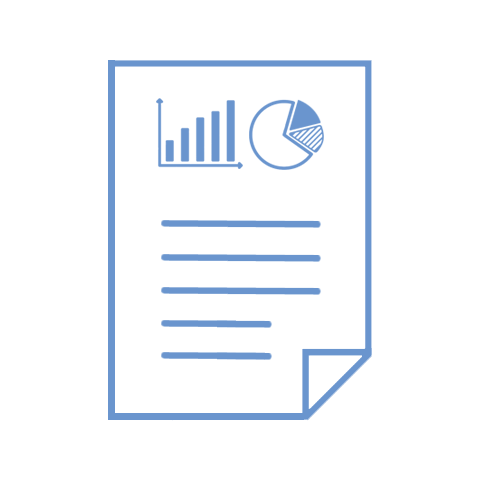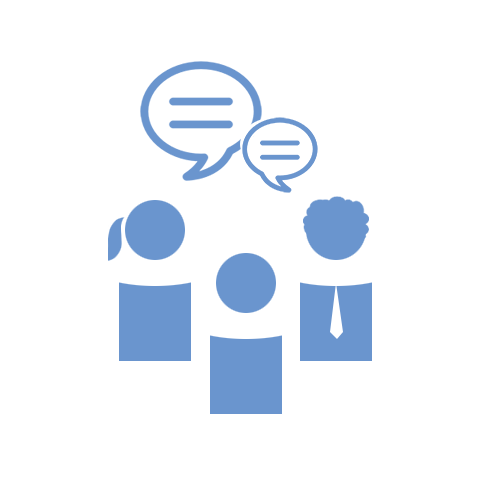
Happy New Year! We hope it’ll be a good one for you (and all of us).
Have a good read.
The team
Articles
AI safety is currently one of the key EA cause areas but it’s not always easy to keep track or even understand all the developments in this field. This AI safety literature review and charity comparison does a great job at filling the gaps. The 2017 version was the most upvoted EA Forum post of all time.
As Nick Kristof of the New York Times likes to say at the beginning of a new year, 2017 was probably the best year in the history of humanity. At the same time, we are also facing grave risks on a planetary scale. This in-depth 80,000 Hours article provides an overview of so-called extinction risks and explains why, despite all progress, humanity may be facing its most dangerous time ever.
Building on DCP1 (1993) and DCP2 (2006), the third edition of Disease Control Priorities was just published in December. DCP3 provides the most up-to-date evidence on program effectiveness for the leading causes of global disease burden. The first two editions played a large role in creating Giving What We Can and the wider ideas of what is now effective altruism. For DCP3 Giving What We Can founder Toby Ord served as a member of the Advisory Committee to the Editors. According to Toby, perhaps the most interesting volume to check out is Volume 9 which connects the pieces together. It also includes a league table of interventions in $ per DALY.
80,000 Hours released a podcast with Dr Michelle Hutchinson about the Global Priorities Institute. They discuss careers in global priorities research, how effective altruism is seen in academia and how hard it is to start something innovative inside a university, among other topics.
Here’s an NPR profile on new GiveWell top charity No Lean Season, a new program in Evidence Action’s Beta portfolio. They provide a travel subsidy of $20 to very poor rural laborers so they can find a job in a nearby city during the period between planting and harvesting. This seasonal poverty affects 600 million people around the world. GiveWell believes there is strong evidence for the positive impact of such seasonal migration subsidies.
Announcements and Calls to Action
EA Donor Lottery
Last chance to donate to the EA Donor Lottery which closes on Wednesday, 10 January. A donation lottery is a different way to donate: Rather than making a donation to a charitable organization directly you donate to a lottery and then get a shot at being able to recommend where the entire pool of money goes, in proportion to the size of your donation. Read more about why donor lotteries might be a great way to donate on the effectivealtruism.org website.
Effective Altruism Foundation Fundraiser
The Effective Altruism Foundation is continuing their annual fundraiser through the of the week. They discuss their plans for 2018 in this EA Forum post.
Animal Advocacy Research Fund
ACE is pleased to announce the next Call for Proposals for the Animal Advocacy Research Fund. The application deadline for the next funding round is 16 February 2018. Before applying, please consider reviewing the Fund’s focus areas page to understand what types of proposals they are most interested in funding. You may also find it useful to review the details of their evaluation process and read about the projects they’ve funded so far.
Updates
80,000 Hours
80,000 Hours released their annual review, and you can support their annual fundraiser here. They grew about 2-fold over 2017 (depending on the metric). They also released a podcast with Dr Michelle Hutchinson about the Global Priorities Institute and careers in global priorities research, as well as advice on where to donate over the giving season.
Animal Charity Evaluators
Animal Charity Evaluators raised over $1.2 million for their Recommended Charity Fund in December. They updated their leafleting intervention report, described the process leading to their 2017 recommendations, and published a blog post detailing where ACE staff members gave this year and the reasoning behind their donations.
Centre for Effective Altruism
CEA published a summary of their work in 2017 and their plans for 2018, created a donor lottery, which you can join until Wednesday 10 January, and recorded a Q&A about Giving What We Can with Julia Wise.
Centre for the Study of Existential Risk
CSER released a Superintelligent AI mod for the “Civilization V” video game. They published a paper on biodiversity loss in the prestigious journal Nature and several papers in the Proceedings of the Garrick Colloquium on Catastrophic and Existential Risk. CSER also released videos of Catherine Rhodes’ TEDx talk and Laura Kahn’s biorisk lecture, and hosted a workshop on recovering from ‘Nuclear Error and Terror’ with the UK Government. Press coverage: on climate change, AI and resource scarcity, lessons from GMOs, and nuclear weapons.
Effective Altruism Foundation
EAF published the talk recordings from their EAGxBerlin 2017 conference and wrote about their plans for 2018.
Foundational Research Institute
In Superintelligence as a Cause or Cure for Risks of Astronomical Suffering, researchers Kaj Sotala and Lukas Gloor argue that suffering risks (s-risks), where an adverse outcome would bring about severe suffering on an astronomical scale, are risks of a comparable severity and probability as risks of extinction. The article appeared in the journal Informatica’s December 2017 special issue on Superintelligence.
Future of Humanity Institute
This month, FHI is hosting a week-long AI Strategy Retreat with 45 attendants exploring our understanding of the nature of advanced AI systems, and possible strategies in response to developments in the space. FHI's paper 'When Will AI Exceed Human Performance? Evidence from AI Experts" was ranked the 16th most discussed academic paper (across all fields) in 2017.
Future of Life Institute
FLI is seeking to expand on their first successful round of grants with a new grant round in 2018! They have also released an end of the year podcast where they discuss the momentum they’ve built, including: the Asilomar Principles, their 2018 AI safety grants competition, the recent Long Beach workshop on Value Alignment, and how they’ve honored one of civilization's greatest heroes.
GiveWell
GiveWell published many new blog posts, including discussions of research on malaria and hookworm eradication that inform its charity recommendations, key questions about its new top charity Helen Keller International's vitamin A supplementation program, an update on its work on outreach, and a look at uncertainty in its cost-effectiveness analyses. All new posts are available at blog.givewell.org.
Global Priorities Institute
The Global Priorities Institute released its new research agenda. Michelle Hutchinson spoke with Rob Wiblin on the 80,000 Hours podcast.
Open Philanthropy Project
The Open Philanthropy Project announced four science grants totaling $10.8M awarded through a "second chance" RFP for applicants to the 2016 NIH Transformative Research Awards program, the largest of which was $6.4 million to Arizona State University to assess the effectiveness of a preventative cancer vaccine in healthy dogs. Open Philanthropy also published a blog post detailing staff members' personal donations for giving season 2017 and another post with suggestions for individual donors.
Raising for Effective Giving
In a record-breaking matching challenge, REG raised $4.5 million for highly effective charities in December. Poker and daily fantasy sports pros Martin Crowley, Tom Crowley, Dan Smith, and Fedor Holz provided a total of $2.25 million in matching funds, which was doubled up by other poker players and effective altruists, making 2017 the biggest year for REG so far. The Machine Intelligence Research Institute, the Good Food Institute, the Animal Welfare EA Fund, GiveDirectly, and the Against Malaria Foundation each received more than $500,000 in donations.
Rethink Charity
LEAN recently published the second installment of the programme’s 2017 impact assessment. This report summarizes themes from semi-structured interviews with over 30 EA group organizers around the world, focusing on common experiences and concerns associated with group growth and outreach. Coming next in the series is a report analyzing these data and extracting strategic conclusions for LEAN specifically and EA groups more generally.
Sentience Institute
Sentience Institute, a new EA research organization, published their first social movement case study, which analyzes the British antislavery movement to determine what modern social movements and particularly the movement against animal farming can learn from their success. In addition to their earlier survey on US attitudes towards animal-farming and animal-free foods and their first technology adoption case study this completed their proof-of-concept. SI's co-founders were also featured in Vice Motherboard's Humans of the Year.
Timeless Classics
Whether you’re new to EA or have been around for a while, why not start the new year by stopping by this comprehensive guide on getting involved as an effective altruist.
Jobs
Several positions at Evidence Action, incl. Program Director at No Lean Season
Researcher at Founders Pledge
Summer Research Visitor Programme at the Global Priorities Institute
Research Analyst at GiveWell (can be remote)
Research Analyst, Outreach Focus at GiveWell
Director of Operations at GiveWell
Summer Research Analyst at GiveWell
15+ jobs at the Good Food Institute, an ACE Top Charity
Senior Operations Manager at New Incentives, a GiveWell Incubation Grantee
International Fundraising Director and International Communication Director at Open Cages, an ACE Standout Charity and Open Philanthropy Project grantee
Go forth and do the most good!
Let us know how you liked this edition and how we can improve further.
If you’re interested in past editions of this newsletter, here is the full archive
Get Involved in Effective Altruism
The Effective Altruism Newsletter is a joint project between the Centre for Effective Altruism, and .impact.
This is an archived version of the EA Newsletter sent to 50,395 subscribers on January 9, 2018.
To see the full archives, click here.


